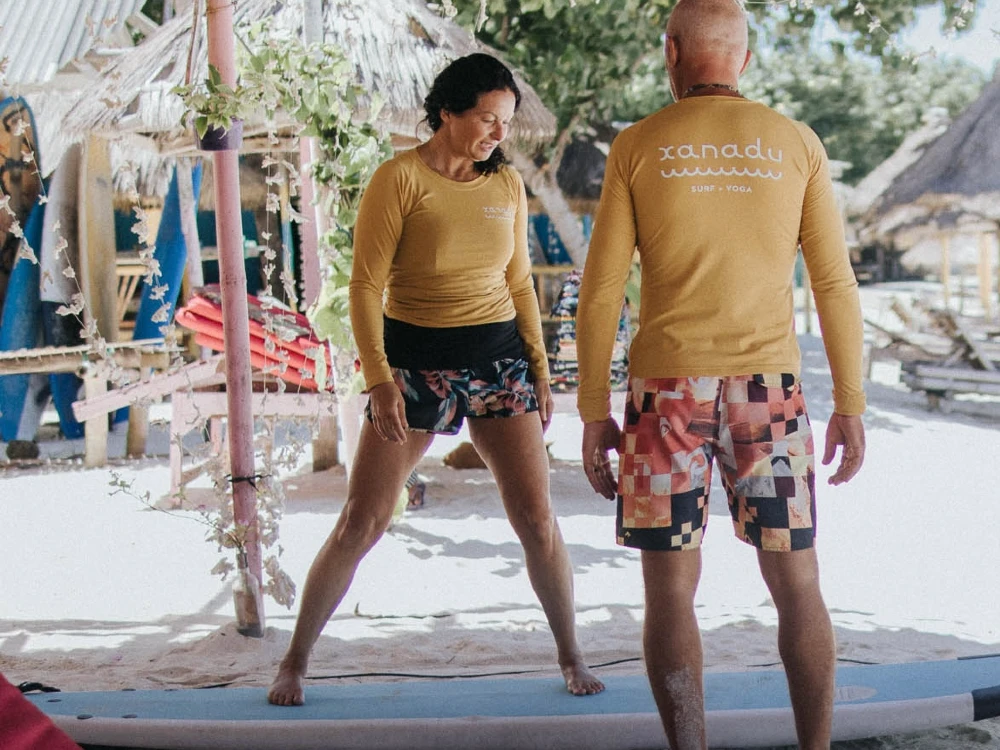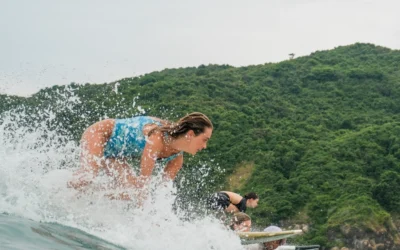Worried that you’re too old to start surfing? Because of all the surfing myths and misconceptions, this might be the most troubling.
Seriously, who amongst you doesn’t feel better, more confident and in control of their life than they were in their teens? Surely that counts for something, right?
You better believe it.
Of course, we’re not putting our head in the sand and saying it’s going to be easy. Like riding a bike, learning a language or playing a musical instrument, it definitely helps to start young.
But here’s the thing. It’s not like you’re learning to surf to become a world champion.
You just want tanned skin, taught arms and to experience the bliss of sailing across the ocean’s surface, propelled by Mother Nature’s raw power and filled with a sense of freedom and joy – all of which is possible no matter how old you are.
So for those of you still unsure as to whether you’re passed your surfing age, this article will inspire you to shift your thinking.
Let’s get into it.
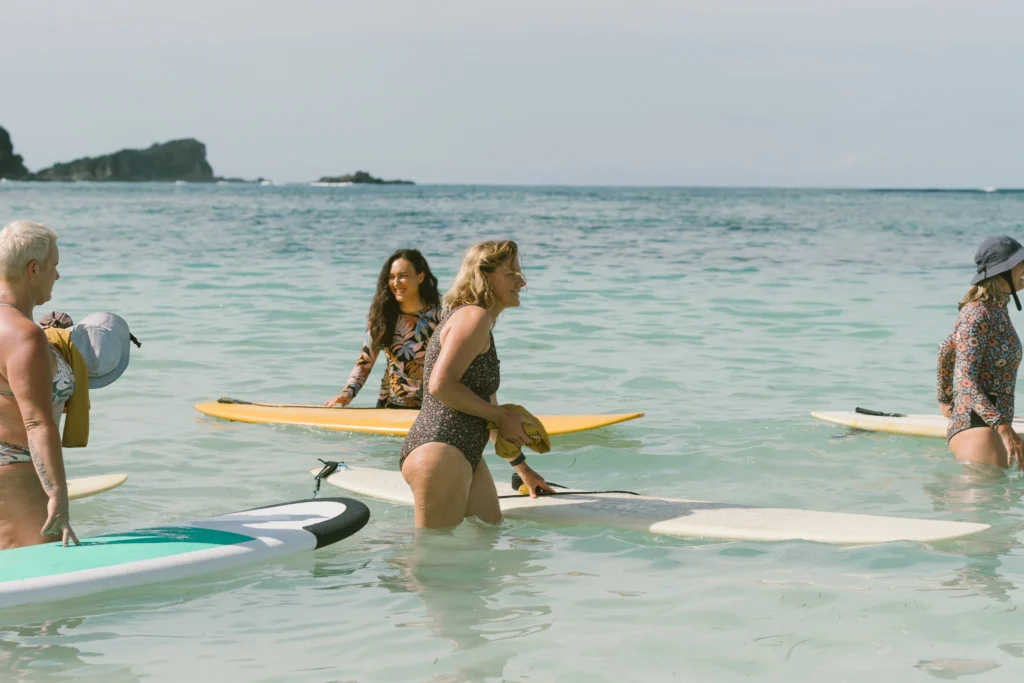


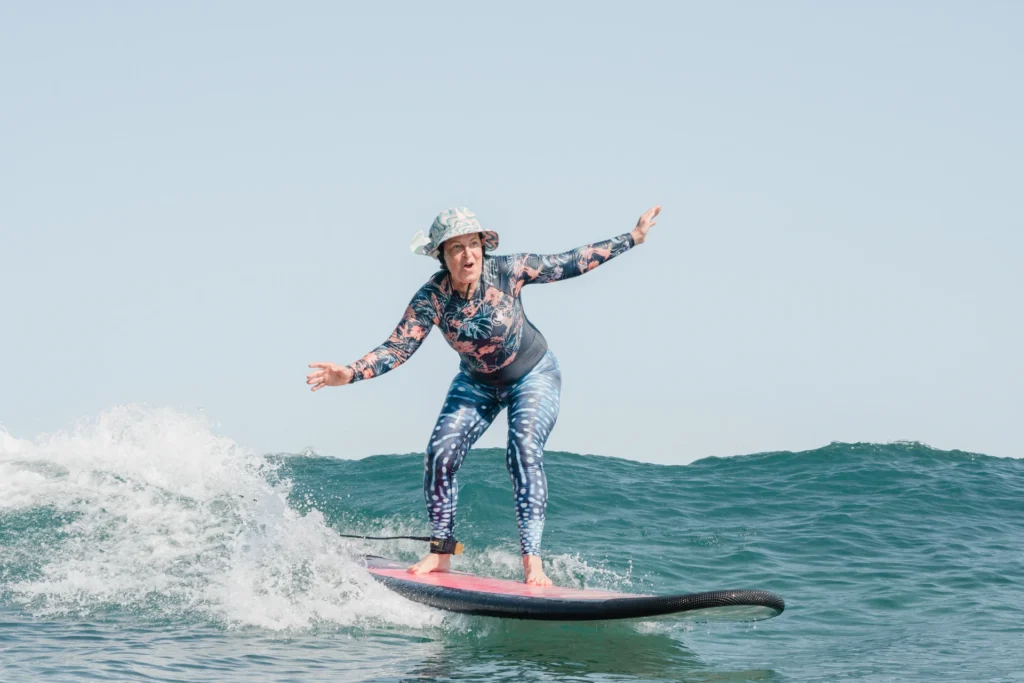
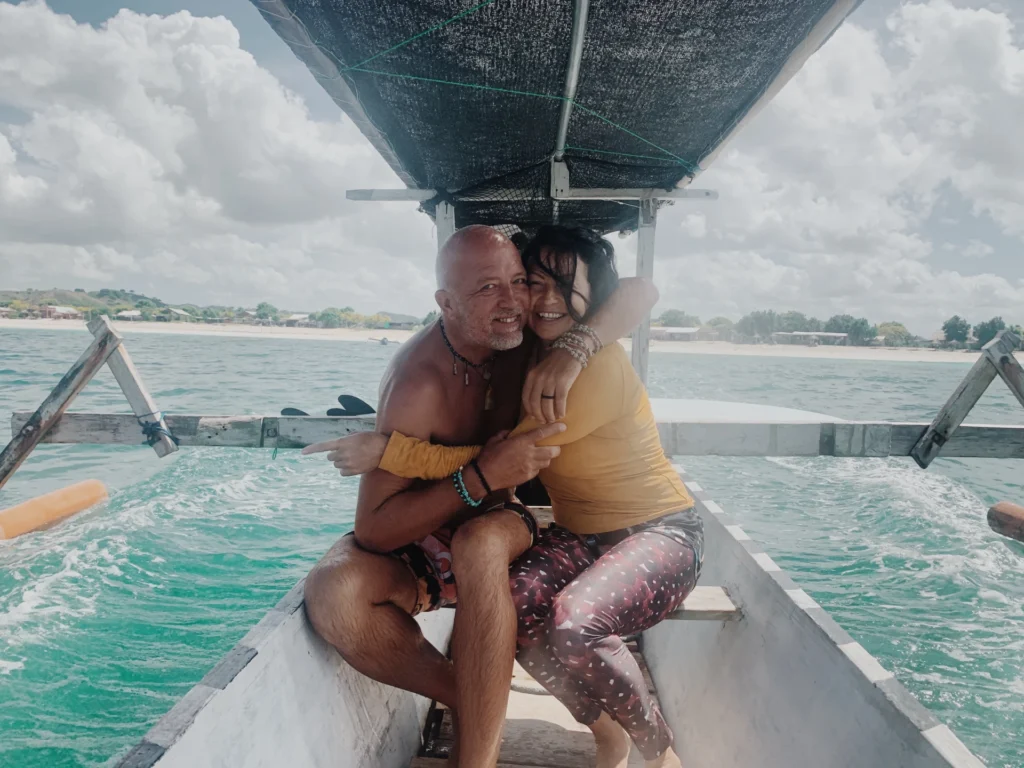
Is there a right age to learn surfing?
Asking if there’s a “right” age to learn surfing is like asking if there’s a “right” age to start living life to the fullest. The answer, of course, is a resounding no.
Surfing is not just a sport, it’s a lifestyle. And like any other passion or interest, it can be picked up at any stage in life.
Sure, starting younger might give you an advantage in terms of physical conditioning and coordination, but that doesn’t mean you can’t catch up and excel later on.
There’s even an argument to be made that starting later in life is easier.
As a kid, you don’t have a driver’s licence, which means you need a parent or guardian to take you to the beach. As an adult, you can make your own way there.
Plus, generally speaking, adults are also more focused and patient — two traits you’ll need to progress as a surfer.
Going back to the original question though, “Is there a right age to learn surfing?”, we’ll refer you to the ancient Chinese proverb that says the first best time to plant a tree is 20 years ago.
The second best time is now.
Common misconceptions about age limits and surfing
“You won’t have the time”
This is one of the stranger misconceptions. On the surface it appears to have some merit, but let’s think about it for a second.
When it comes to managing time, saying you don’t have any is a cop out. What we really mean is that we’re not prioritising this particular thing at this particular moment.
If you’re serious about learning to surf, or learning anything for that matter, you’ll make time.
Of course, if finding a spare minute between work and life commitments is too difficult, there’s another solution: incorporate learning to surf into your holiday.
We know a great surf destination for beginners in Lombok if that sounds like a plan *wink, wink*.
“You’ll have a higher risk of injury”
Let’s get real here.
Any physical activity you pick up comes with a risk of injury.
If you want to experience the sheer thrill of a boardsport though, surfing is far more low-impact than other boardsports like skateboarding, snowboarding or wakeboarding.
The boards are soft and you’ll only ever fall into pillowy, foamy water. And because you’re not going to be hitting the biggest swells like a pro, your risks are even lower.
“Surfing is only for the young and fit”
Yes, being young and fit helps with your balance and flexibility, but surfing has come a long way in terms of accessibility.
There are plenty of surf camps, private lessons and surf retreats that cater to all levels of fitness and experience. And with longboards specifically made for beginner surfers, people of all abilities can find their feet on the waves.
Oh… and keep in mind that you wind back the clock by surfing.
That’s right, the more you surf, the fitter you become and the easier it is to surf. That’s a win-win-win situation.
“Surfing is too expensive to get into”
If you think buying surf gear, going on surf trips and taking lessons is too expensive, try doing all those things as a kid working and after-school job.
And besides, you don’t actually need all the gear when you’re just starting out. For those of you surfing later in life, all you need is to book a surf getaway with a surf experience provider that offers free equipment with lessons.
This way you can go on an awesome holiday and dip your toe in the surfing world, pun intended.
Then, if the surfing bug bites and bites hard, you can always pick up more affordable secondhand gear before investing too heavily.
See? There’s a solution for everything!
How to learn surfing in your 20s, 30s, 40s and beyond
As mentioned earlier, there is no “right” age to start learning surfing.
You could be a career-oriented 30-something-year-old who decides to try surfing for the first time or a full time dad in your late 40s looking to reconnect with your adventurous side.
The bottom line is, no matter what stage of life you are in, there is always a way to learn and enjoy surfing.
Here are some tips for those learning how to surf later in life.
Identify the path of least resistance when it comes to surf lessons
The hardest part of getting started is actually getting started. Our advice is to start small and build your way up.
Look for the path of least resistance and make surfing work around your schedule. The key is to be consistent without overwhelming yourself.
If you’re a parent with kids in school, you might seize the opportunity to go surfing while they’re in class. If you have a flexible job, consider taking some early morning lessons before your workday begins.
Make the first step as easy as possible for yourself. This increases the likelihood you’ll continue.
Commit to doing more than one surf lesson session
There’s nothing wrong with only doing one surf lesson. If you simply want to see if it’s for you, you get our respect for actually trying as opposed to doing nothing about it.
The only problem with taking just one lesson is that you put a lot of pressure on yourself to perform in that one 1 to 2 hour block. As per our previous point, you want to gently work your way up to get better at surfing.
Committing to more than one lesson gives you the chance to gradually build your confidence and skills, while also giving yourself some time in between lessons to practise on your own.
Besides, paying upfront for more than one lesson makes it harder to pull out. Because there’s nothing like the thought of throwing money down that drain to motivate people!
Watch surf movies, read books about surfing and familiarise yourself with surf culture
Surfing’s history is just as rich as the sport itself.
Seminal movies like the Endless Summer 2 or Alby Falzons Morning of the Earth are must-watch. While books like William Finnegan’s Barbarian Days and Yvon C. Chouinard’s Let My People Go Surfing are a must-read for anyone who wants to learn about the culture, history and personalities that make surfing such a special experience.
And who knows? Brushing up on your surf knowledge might unlock a whole new level of appreciation for the sport.
Invite friends or family members to join you
Accountability is a big part of not just starting surfing at a later age, but also sticking with it long term.
Inviting friends or family members to join you in your surfing journey not only creates an enjoyable social experience, but also keeps you motivated and accountable. You can learn together, laugh together and support each other as you progress in your surfing skills.
Besides, watching a friend wipeout is something that you can remind them of for years to come.
A true bonding experience if there ever was one.
Practise your manoeuvres at home or in a swimming pool
The two most fundamental aspects of surfing are popping up on your board and paddling.
The first can be practised at home, either on a yoga mat or directly on the floor. The latter can easily be done by incorporating swimming into your exercise routine.
By working on these two key elements outside of your surf lessons, you’ll make your time in the water more enjoyable and productive.
Don’t compare your learn-to-surf journey to others
Last but not least, if you’re wondering whether you’re too old to start surfing, remind yourself that you’re never too old to try something new.
Surfing is a personal journey and everyone learns at their own pace. Don’t worry about what others are doing, focus on your own progress and enjoy the ride (literally).
Final thoughts
There’s no better time to learn surfing than right now. And at the risk of getting all cliche, age really is just a number.
Mindset is what it’s all about. And if you’re willing to put in the effort and have some fun along the way, then you’re on your way to catching waves and having the time of your life.
So don’t be discouraged if you want to learn to surf in your 20s, 30s, 40s or beyond.
We’ll be here ready and waiting to open your soul to the deep and infinite pleasure that is surfing!

